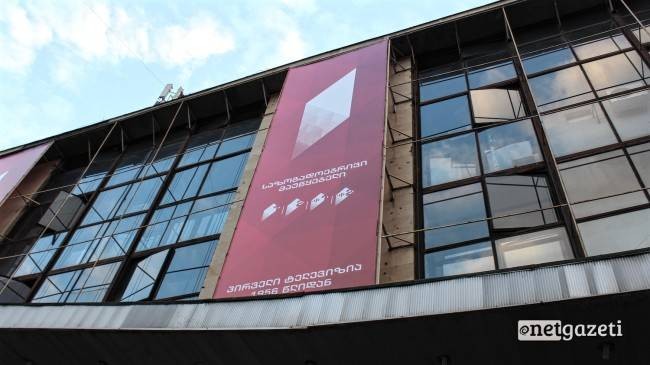საერთო ცხელი ხაზი +995 577 07 05 63


Human Rights Education and Monitoring Center (EMC), once again calls on Georgian public broadcaster to provide constant information flow to non-Georgian speaking population of the country regarding the news on COVID-19 pandemic and the means of its prevention, through television broadcasting.
Social crisis that emerged from the spread of COVID-19 virus within the country made it apparent to the society and the government, the systematic challenges faced by the ethnic minorities living in the regions of Georgia. One of the prominent problem is the lack of access to information in a language understood by minorities. Throughout the years, numerous local and international human rights organizations have pointed out the need to effectively fulfill the state's obligations to inform ethnic minorities in a language they can comprehend.
The news program "Moambe", airing on Georgian public broadcast channel (second channel), for several years now does not broadcast the news იn the language understood by the minorities. It was completely replaced by the web portal 1TV.ge, which provides access to news in 7 different languages. It is clear, that in a reality where a large part of our society does not have the access to the internet due to social, infrastructural and other reasons; therefore, the Internet medium does not ensure proper access to information for ethnic minorities.
Following the declaration of the state of emergency, it is worth noting that the Georgian Public Broadcaster started translating and airing information in Armenian and Azerbaijani languages. However, in the last few days, information about the virus and its prevention has been disseminated in the mentioned languages, mainly only during the 12-hour and 3-hour timeslots on news program "Moambe", or as infomercials at the end of the broadcast. In addition, StopCoV.ge news clips are broadcasted in minority languages several times a day. However, the significant information, meaning the main important events of the day are only posted on the web portal. On the web-portal, “Moambe” runs on Azerbaijani and Armenian languages four times a day, each segment lasts 3 to 5 minutes, except for the evening edition which spams from 6 to 8 minutes. Website has articles on the latest news of the country and the world, translated into seven languages; majority of the news for the past few weeks have been concentrated on the news regarding the COVID-19 - the statements of ministers or the state of the world. Furthermore, according to Ramilia Aliyeva, a member of the “Diverse Georgia” group on the Georgian Public Broadcaster, Azerbaijani and Armenian-speaking citizens can subscribe to the First Channel's number and receive the necessary information in their own language, through the Whats-App application.
Although, broadcasting information on existing rules and Stopcov.ge infomercials on Georgian Public Broadcaster in the state of an emergency is a positive development, in the current environment, where it is of vital importance to properly and fully inform the population, the Public Broadcaster cannot ensure to fulfill this duty. In contrast to the web portal, only scarce information is broadcasted in Azerbaijani and Armenian languages, and the information broadcast in each language during the day does not even exceed 10 minutes in total. The first channel daily airs a program called "Personal Doctor", which through inclusion and advices attempts to inform the population about the coronavirus, but this information is not translated into minority languages in any way.
The First Channel team already puts immense work to make the information available in different languages, however, this effort is mainly concentrated on the web page and unfortunately does not go beyond that. It is conceivable, that in a Marneuli and Bolnisi where television is often the main source of information, the main emphases should be put on exactly this medium, which provide the fastest and most comprehensive information to non-dominant groups.
According to the latest available data, Internet coverage in Georgia is 68.1%, while Internet coverage in Kvemo Kartli equals to 60.5%. Telephone internet coverage is much higher, but it should be noted that there is a big difference based on geographical and age factors; furthermore, rural residents, as well as people over 60, consume much less or no internet at all. The geographical difference is due to the lack of proper infrastructure in the regions, the lower quality of the Internet and its high cost, which is much more difficult to pay for rural residents.
It should be noted that providing sufficient information to ethnic minorities and covering current issues in regions populated by ethnic minorities are among the Georgian Public Broadcasters’ program priorities and it is essential that the broadcaster fulfills this priority thoroughly.
Given that in the conditions of a pandemic regular and accessible provision of information to the population in their languages regarding the state policies and the tools of prevention, is vital for the containment of the virus, EMC calls on the public broadcaster the following:
The website accessibility instruction